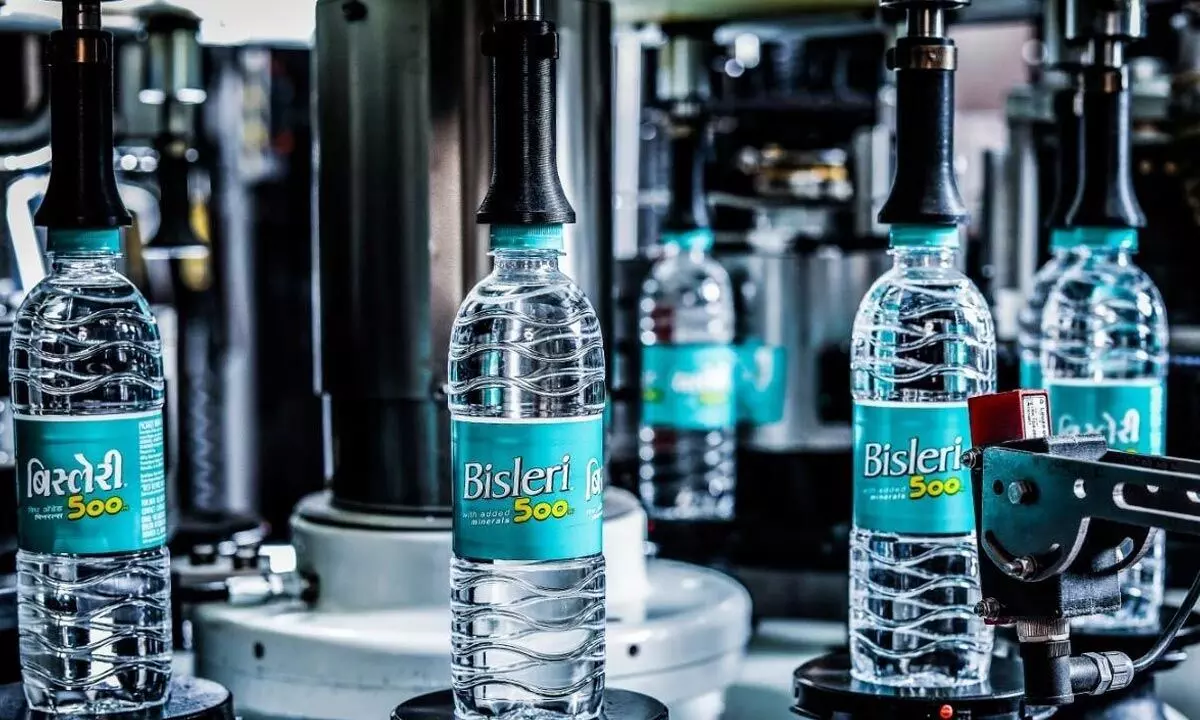All manufacturers must take cue from Bisleri’s ‘Bottles for Change’
As a leading mineral water company, it has been making and selling bottled water and other beverages mostly in plastic bottles, for several years now. In keeping pace with the demands amid calls for environ-friendly initiatives, it has changed gears while going all-out to emerge as one of the first consumer goods companies to be plastic-neutral and water positive.
image for illustrative purpose

As a leading mineral water company, it has been making and selling bottled water and other beverages mostly in plastic bottles, for several years now. In keeping pace with the demands amid calls for environ-friendly initiatives, it has changed gears while going all-out to emerge as one of the first consumer goods companies to be plastic-neutral and water positive. Bisleri International Pvt. Ltd. has come up with a 'Bisleri Greener Promise', an avatar that is evolved around a sustainability philosophy that focuses on creating a greener future by reinforcing and implementing programs in recycling, water conservation and sustainability.
This move assumes significance in the wake of the fact that from production to disposal, bottled water production affects climate change, humans, flora and fauna. Plastic water bottles, much like the ubiquitous plastic bag, may seem useful in everyday life but the environmental impact they produce is unsustainable, nay fatal. The large quantity of plastic water bottles that we throw in landfills and oceans has become an avoidable burden on the environment. The world buys a million plastic bottles every minute. People who do not have drinkable water running in their home pipes often turn to the one option they can bank upon-bottled water.
Mind you that discarded water bottles and their caps make up the third and fourth most recovered plastic trash in ocean conservancy's annual beach clean-up. Nearly eight million tonnes of plastic enter the oceans yearly, killing more than 1.1 million seabirds and animals. The Container Recycling Institute found that 86 per cent of plastic water bottles consumed in the US end up in trash. Indiscriminate disposal of plastic bottles in developing countries, which do not have a sophisticated waste disposal system, can aggravate flooding. This happens when plastic bottles end up in the sewage or drainage system and create a blockage. Blocked drainage causes many other problems as wastewater accumulates and breeds disease-causing viruses. It also causes air pollution and an unpleasant odour.
Now Bisleri has lined up plans to connect with 20 major cities to collect and recycle 12,500 tonnes of plastic by 2025 through its ‘Bottles for Change’ initiative. Additionally, it will be engaged in restoration or building of 350 dams in Maharashtra and Gujarat to provide water security and enhance crop production. Under ‘Project Nayi Umeed’, more than 35,000 million litres of water will be harvested, and it will help irrigate more than 23,000 acres of land. The company aims to reduce its carbon footprint by 10 per cent and lower the use of virgin plastic by over seven per cent.
The bottled water company has already started working towards bringing behavioural change and raising awareness about the importance of post-consumer plastic. Through the programme, it has brought a mindset change among 600,000 citizens by organizing sensitization workshops and collection drives. These were conducted at over 3500 housing societies, 680 educational institutions, 790 corporates, and 600 eateries across seven cities. The efforts have resulted in collecting and recycling over 4000 MT of used plastic. The overall plan is to build a circular economy, utilizing resources efficiently, reducing GHG emissions, replenishing water, and recollecting packaging material. Although belated, the Bisleri initiative serves as a lesson for all of us, particularly for the manufacturing industry. Is anyone listening?

